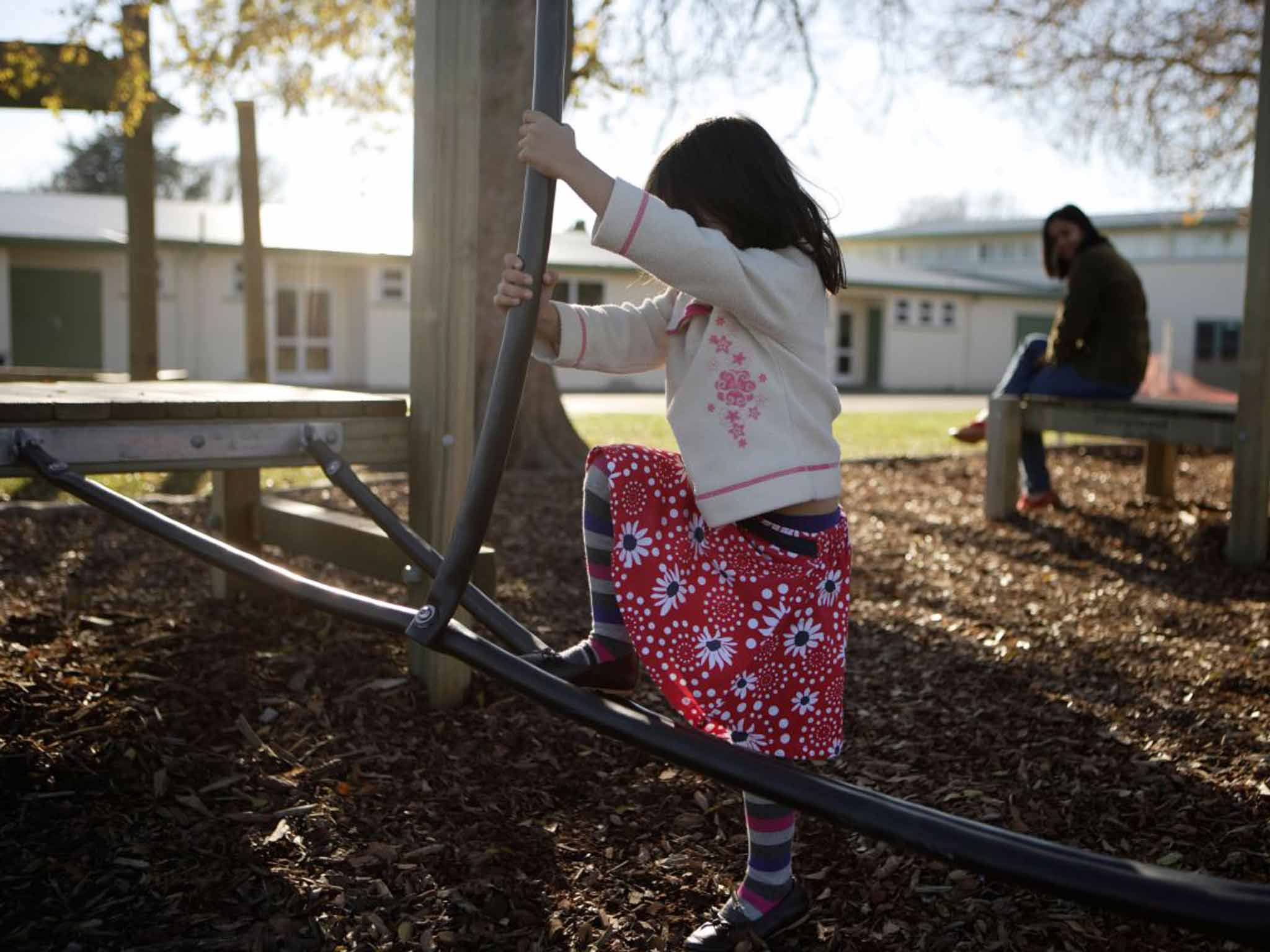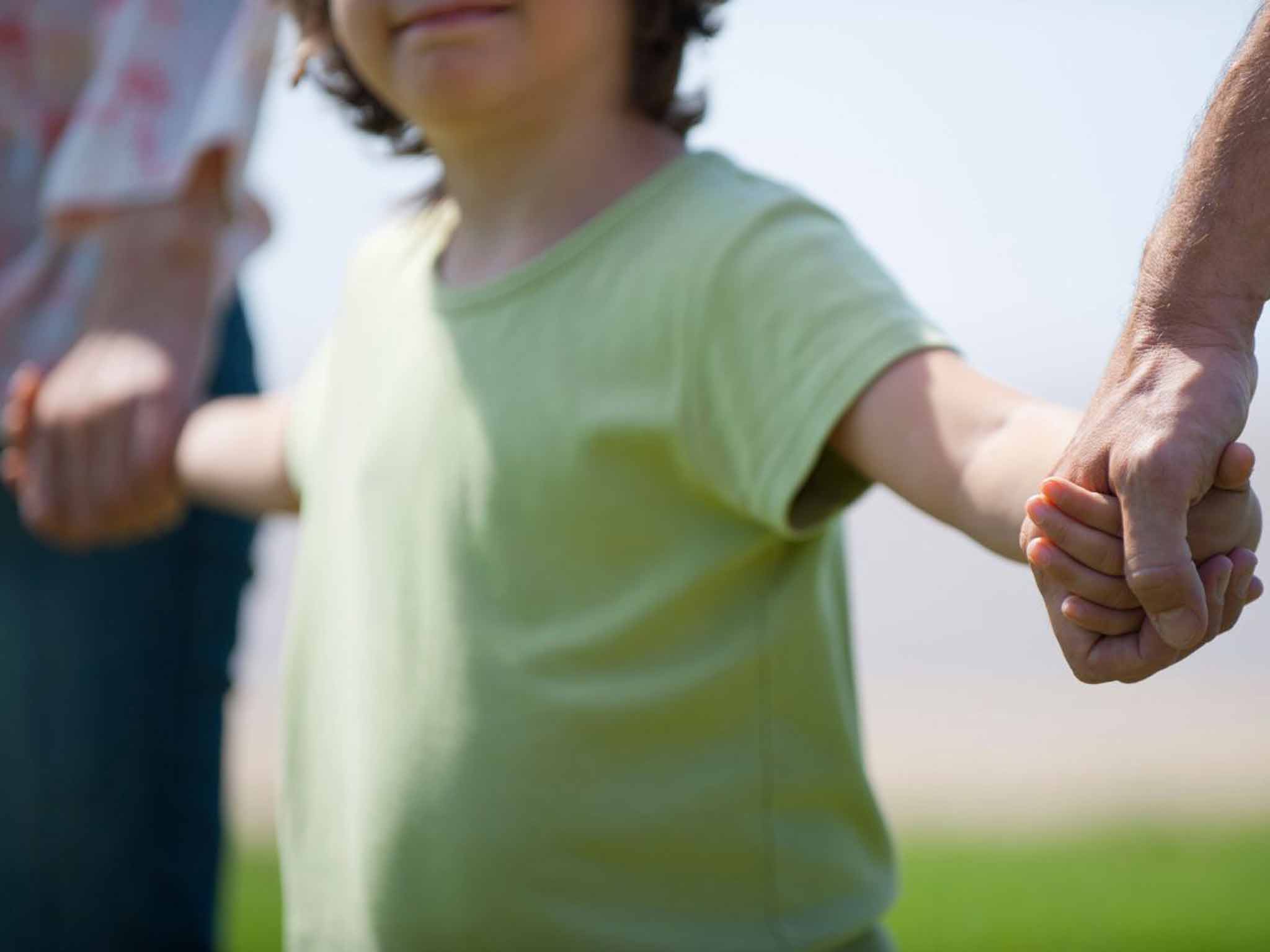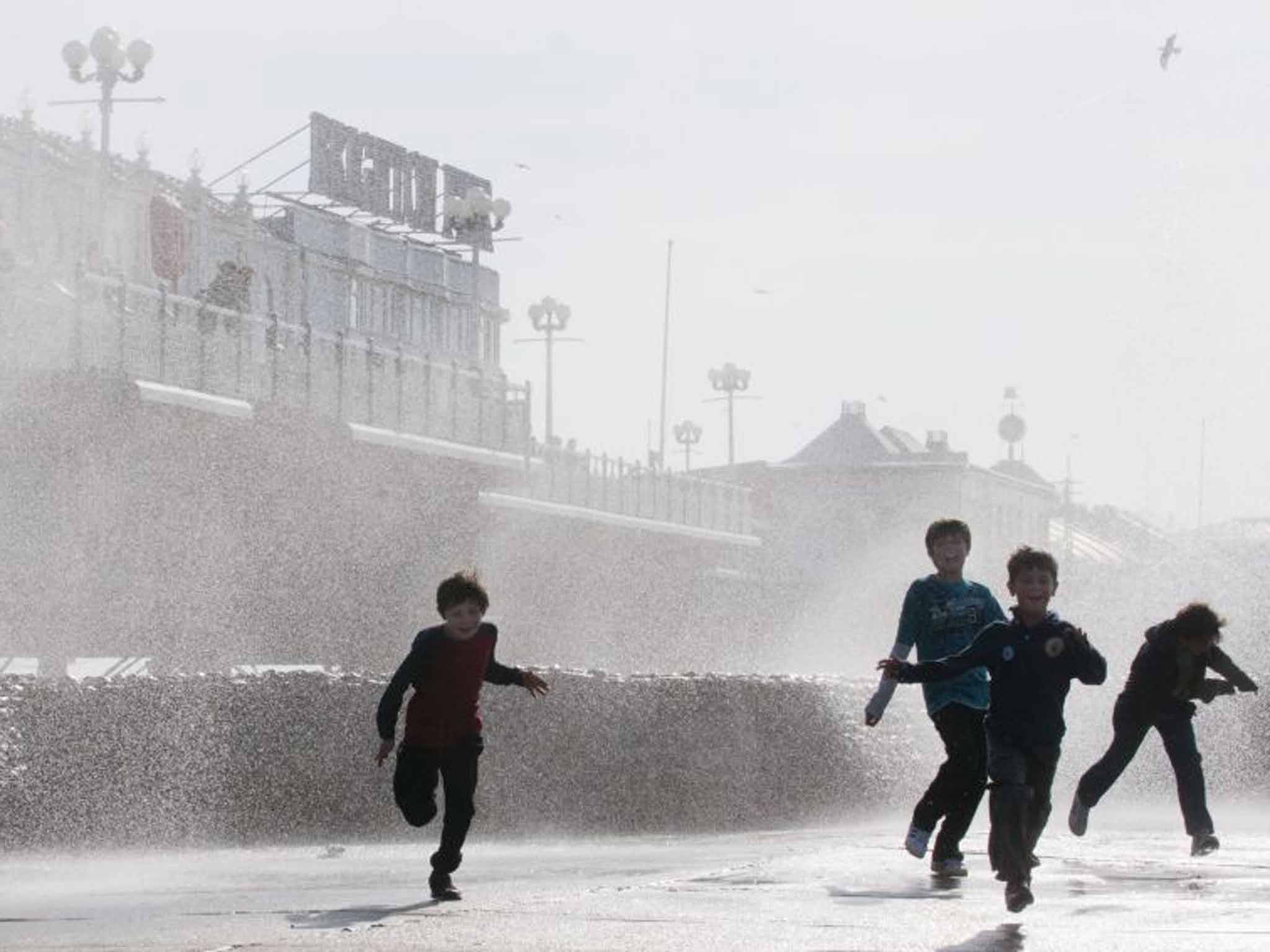How much independence should children have?
In 2001, as adult supervision seemed to be extending into every aspect of children's lives, Frank Furedi wrote the seminal 'Paranoid Parenting'. Now, as a mother who let her nine-year-old go to the park alone is jailed for abandonment, he realises that the problem is far worse than even he imagined then

Your support helps us to tell the story
From reproductive rights to climate change to Big Tech, The Independent is on the ground when the story is developing. Whether it's investigating the financials of Elon Musk's pro-Trump PAC or producing our latest documentary, 'The A Word', which shines a light on the American women fighting for reproductive rights, we know how important it is to parse out the facts from the messaging.
At such a critical moment in US history, we need reporters on the ground. Your donation allows us to keep sending journalists to speak to both sides of the story.
The Independent is trusted by Americans across the entire political spectrum. And unlike many other quality news outlets, we choose not to lock Americans out of our reporting and analysis with paywalls. We believe quality journalism should be available to everyone, paid for by those who can afford it.
Your support makes all the difference.It is the same story every summer. Surveys are issued and articles are published decrying the dramatic decline of children playing outdoors. This ritual of hand-wringing about the "end of childhood" usually terminates around the end of August as parents get ready for their daily routine of driving their kids to school.
This summer, it was the turn of the National Trust to commission a survey to report what has been communicated in hundreds of studies during the past two decades. Its survey of seven- to 12-year-olds rediscovered that most youngsters play outdoors for less than an hour a day and that the "simple delights" of climbing trees and building dens have been replaced by hours spent in front of screens in digital bedrooms. In recent weeks, these findings have been echoed by reports in Canada and the United States.
No doubt the authors of these reports and many other adults are genuinely worried about the estrangement of children from outdoor play and independent mobility. But society as a whole does not take children's freedom seriously. Its statements of concern represent a gesture of hypocrisy on this matter. Why? Because Western societies actually regard parents who allow their children to pursue an independent outdoor life as irresponsible. Indeed, in some cases, parents who permit their child to lead an independent life are actually criminalised.

Take the recent arrest and jailing of Debra Harrell, a South Carolina mother. Her crime was that she allowed her nine-year-old daughter to play with her friends in the park while she worked. The youngster had two days of fun messing around with other children before a busybody adult asked where her mum was. When told that her mum was at work, the adult phoned the police, who promptly declared that the girl was abandoned and arrested Harrell.
Those readers who are tempted to conclude that these miscarriages of justice happen only in the American South and not in our own backyard should take a reality check. Look at the recent account of a London mother who sought to cultivate her children's capacity for independence.
"I was coming home through the small park with my two children, and my very sensible nearly six-year-old wanted to go ahead, so I let her, and told her to wait at the gate, which is near a road. It took me two or three minutes to get there with my two-year-old. When I got there, as I expected, my six-year-old was waiting for me, but also there was a crowd of people around her. I got a lot of disapproving glances and one woman told me I was being irresponsible. This has put my daughter off from running ahead even more than it has put me off encouraging her! Talking to friends of mine, versions of this are a common experience."
Thankfully, this mother did not have to face the sanctions of the system of criminal justice. But the reaction she faced was not unlike the one that confronted Debra Harrell. In the current climate of obsession with children's safety, parents who let their youngsters out of sight court the accusation of irresponsibility, if not gross negligence. Is it any surprise that many parents are less than enthusiastic about providing their offspring more opportunities for outdoor play?
So before another charity is tempted to produce another dreary report decrying the erosion of outdoor play, they should acknowledge the reality, which is that such activity directly contradicts the prevailing ethos of child protection. And the paranoia is getting worse.
In 2001, when I published my book Paranoid Parenting, I was genuinely surprised to discover that virtually all experiences associated with childhood came with a health warning. At the time, Paranoid Parenting documented the growing tendency to extend adult supervision into every aspect of children's lives. It was apparent that the outdoors had become a no-go area for many youngsters and that the majority of parents did not even allow their offspring to walk to school on their own. The idea that children were too vulnerable to be allowed to take risks had already become entrenched. That was bad enough. But since the turn of the century, the regime of child protection has become steadily more pervasive and intrusive. The relentless erosion of children's freedom has been paralleled by the constant tendency to politicise parenting.
During the past decade or so, the banning of a variety of activities associated with children's life has acquired a relentless dynamic. I still remember, when in February 2007 after a group of children were suspended from school for throwing snowballs, an angry mother writing to me to ask: "What will they think of next?" Regrettably, the obsessive impulse to regulate children's life ensures that the next target of child protection is already on the horizon.
More than any of the bans introduced in recent years, the attempt to discourage children from playing with horse chestnuts symbolised the irrationality of the crusading spirit driving child protection. In 2001, no one imagined that English children would be prevented from pursuing the age-old custom of conkering. At first, many adults were shocked when they discovered that a few local authorities had introduced a new policy of "tree management", a euphemism for preventing children from climbing on horse-chestnut trees or playing with conkers. Today, that shock has turned into a sense of resignation. The refrain "we live in a different world" signals this uneasy acquiescence to the new reality.

Of all the bans which have been introduced, the one which I have found the most disquieting is the prohibition on the taking of photographs of children. Although the taking of a picture of a child is not illegal, it is frequently treated as a crime. Numerous institutions have drawn the conclusion that such photographs are inconsistent with the exigencies of safeguarding children. Consequently, many petty officials have decided to take the law into their own hands. In 2001, newspapers did not mask the faces of children, and parents were not banned from photographing their children performing in a school play.
As a father, I deeply resented the climate of hysteria that makes it difficult for parents to take photos of their children during school plays and concerts and sporting activities. I still remember the moment when the manager of my son's under-9s football team informed us that no one could take a picture of the children during the game unless every parent agreed. Since it was impossible to get everyone's agreement in the middle of the game, I never succeeded in capturing an action shot of my son running with the ball. For me, the empty spaces in the family photo album symbolise the absurdity of the current ethos of child protection.
The "no-picture" rules have been accompanied by the proliferation of "no-touch" rules, introduced to prevent adults from coming into direct physical contact with children. Even nursery workers feel that their action is under constant scrutiny. Adult carers have not been entirely banned from applying suncream on children. Some still follow their human instinct and do what they believe is in the best interest of a child. But frequently this practice requires formal parental consent. It is now common practice for nurseries and schools to send out letters to parents to sign to give consent for teachers to have the right to put suncream on their child. Some schools would rather that teachers had no physical contact with their pupils at all and insist that either the parent or the child applies the suncream. These "no-touch" rules are underpinned by an ideology that regards physical contact between adults and children as a marker for potentially malevolent behaviour.
Since the turn of the century, mistrust of adult interaction with children has escalated to the point where it has led to a crisis of inter-generational interaction. Suspicion towards adult behaviour is not confined to strangers; increasingly, parenting has become an all-purpose cause for all the evils afflicting society. Month after month, reports blame the parenting deficit for problems such as low achievements in schools, low self-esteem, drug taking, obesity, crime, and mental-health problems. Politicians of all parties have waded in and have transformed child rearing into a constant political issue. Government initiatives are underpinned by the assumption that parents cannot be trusted and must be subject to constant surveillance. That is why the current Government took it upon itself to introduce a rule that will, from next year, ensure that all children who visit an accident-and-emergency unit in a hospital will be logged on a new national database set up to identify potential victims of abuse.
Arguably, the most disturbing manifestation of the politicisation of parenting is the Children and Young People (Scotland) Act. This grotesque act empowers the state to appoint a "named person" for every child, from birth to the age of 18. The duty of this state-appointed named person will be to act as the child's guardian. Scotland's minister for Children and Young People, Aileen Campbell, thinks that this erosion of parental authority is OK and offers reassurance with the not very reassuring words that "we recognise that parents also have a role". "Also"? If the experience of the past 15 years is anything to go by, political intervention in child rearing is likely to become more prescriptive and intrusive.
The proliferation of rules governing inter-generational relations is underpinned by a veritable ideology of evil. It is the vision of the omnipresence of paedophilia that fuels the politicisation of childhood. The conviction that just about any adult is a potential child predator has acquired the status of a secular religion and now governs proceedings in everyday life. The reason why Debra Harrell was jailed was not because she had really abandoned her child. Her real crime was that by allowing her daughter to play unsupervised in a park she had failed to protect her child from the ever-present child-predator. From this point of view, the loss of children's freedom is a small price to pay for keeping the monsters at bay.
Transformation of child protection into an ideology has the perverse consequence of undermining the security of the very people it seeks to protect. Every year, new rules are introduced and yet every year child-protection crusaders declare that children are more at risk than ever before. Each warning is a prelude to the discovery of a new problem. Almost seamlessly the risks facing children offline – bullying, abuse, predators – were rediscovered online, so that not even the digital bedroom can be regarded as a safe place.
The tragedy is that the best way to protect children is to cultivate their aspiration for independence and autonomy. It is through the experience gained from engaging with the world that children gain the resources to manage risks and develop strategies for dealing with threats to their personhood. Sadly, in the current climate of child protection, parents are discouraged from doing precisely what is likely to provide their kids with the existential security they need to make their way in the world.
Dr Frank Furedi is emeritus professor of sociology at the University of Kent's School of Social Policy, Sociology and Social Research
Join our commenting forum
Join thought-provoking conversations, follow other Independent readers and see their replies
Comments